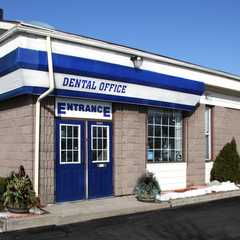
James Frizzell, DDS, has led Frizzell Dental of Niagara Falls, Ontario, for more than 22 years. As a dentist, Dr. James Frizzell offers fluoride treatments and other preventive measures to help his Niagara-area patients maintain good oral health.
Dental enamel undergoes a continuing process of demineralization and remineralization. Sugars and bacteria in the mouth combine to form an acid plaque, which dissolves the phosphate and calcium that are the building blocks of the enamel itself. Some of this phosphate and calcium returns to the teeth when the plaque acid neutralizes, or through the ingestion of food and liquids that contain such substances.
When the teeth come into contact with too much sugar, however, the balance between demineralization and remineralization shifts. Teeth can no longer replenish enamel, which then weakens and decays. External applications of fluoride help to facilitate remineralization, while also strengthening the new enamel crystals and inhibiting the process by which acid forms from bacteria.
Because it strengthens enamel while also preventing decay, fluoride is most crucial for patients under the age of 16. During this phase of life, the adult teeth are coming in and developing their adult strength. Fluoride remains beneficial even for fully grown adults, however, and is particularly important for those with dental appliances, gum disease, or frequent cavities.
Dental enamel undergoes a continuing process of demineralization and remineralization. Sugars and bacteria in the mouth combine to form an acid plaque, which dissolves the phosphate and calcium that are the building blocks of the enamel itself. Some of this phosphate and calcium returns to the teeth when the plaque acid neutralizes, or through the ingestion of food and liquids that contain such substances.
When the teeth come into contact with too much sugar, however, the balance between demineralization and remineralization shifts. Teeth can no longer replenish enamel, which then weakens and decays. External applications of fluoride help to facilitate remineralization, while also strengthening the new enamel crystals and inhibiting the process by which acid forms from bacteria.
Because it strengthens enamel while also preventing decay, fluoride is most crucial for patients under the age of 16. During this phase of life, the adult teeth are coming in and developing their adult strength. Fluoride remains beneficial even for fully grown adults, however, and is particularly important for those with dental appliances, gum disease, or frequent cavities.
 RSS Feed
RSS Feed
